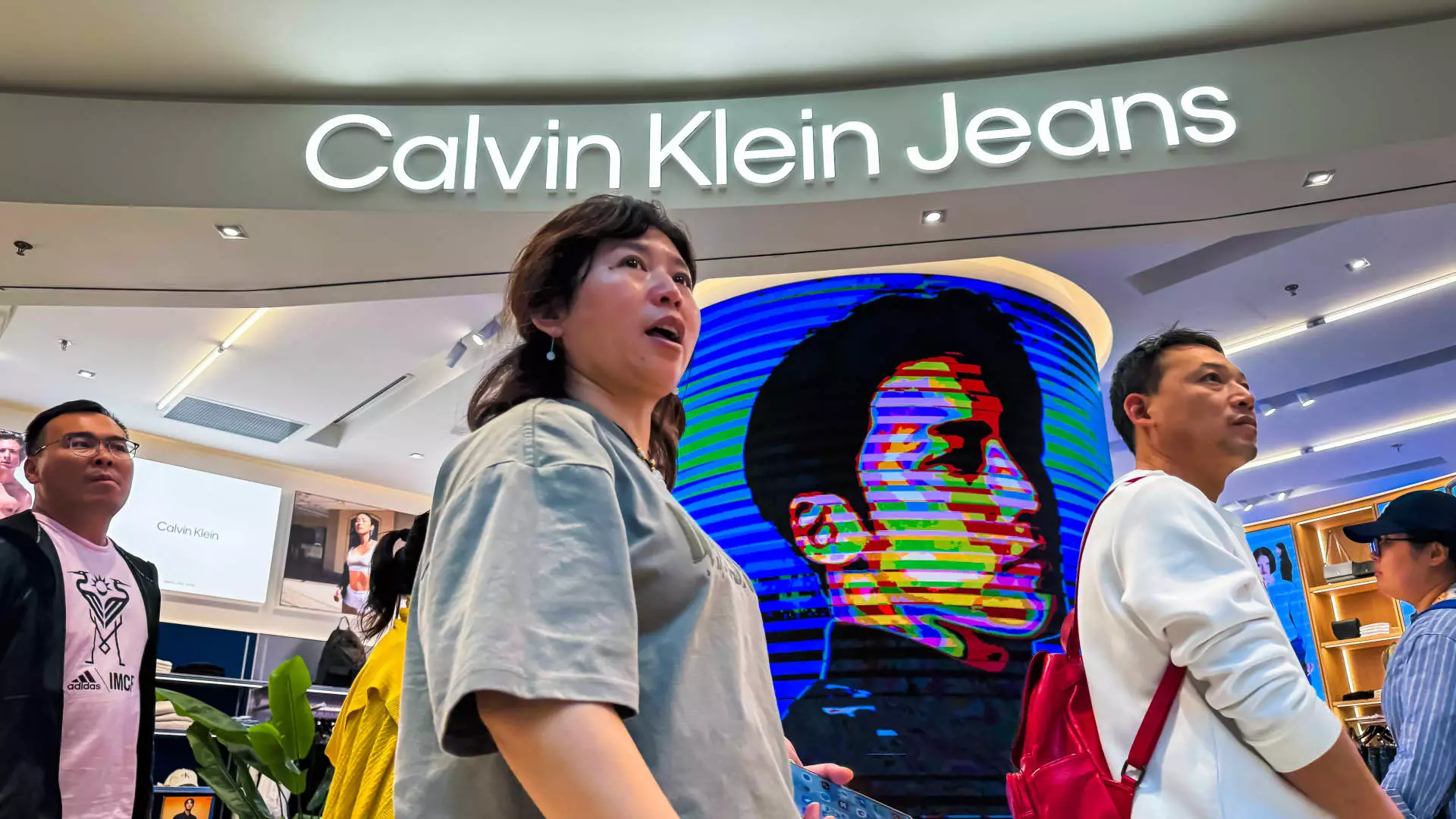In recent years, the complexities of international trade have intensified, particularly with the rise of protectionist policies and retaliatory measures among the world’s largest economies. The escalating trade dispute between the United States and China has seen significant developments, and the recent blacklisting of PVH Corp., the parent company of brands like Calvin Klein and Tommy Hilfiger, serves as a stark illustration of the potential ramifications of such geopolitical tensions. This ongoing saga raises questions about the future of U.S. businesses operating in China and highlights the precarious nature of global commerce in an era of trade wars.
China’s decision to add PVH Corp. to its “unreliable entities” list marks a significant escalation in its response to perceived affronts by foreign businesses. This classification not only subjects PVH to potential fines and restrictions on trade but could also disrupt its operational structure within China, where the company has flourished for over two decades. The Chinese government’s move underscores a broader strategy aimed at displaying its willingness to retaliate against U.S. firms that do not comply with its expectations, particularly when these expectations relate to sensitive issues like human rights and ethical sourcing.
The timing of China’s blacklisting comes shortly after the Trump administration imposed a 10% tariff on Chinese imports. This tit-for-tat retaliation clearly signals that both nations regard economic leverage as a tool of foreign policy. PVH’s predicament exemplifies how rapidly a business can be ensnared in harmful political dynamics, with the potential fallout having a ripple effect on their entire operational ecosystem.
The rationale behind China’s blacklisting of PVH appears to be rooted in the company’s sourcing practices, specifically its refusal to purchase cotton from the Xinjiang region. This region has attracted international scrutiny due to allegations of human rights abuses against the Uyghur population. By targeting PVH, China essentially signals to other companies the potential consequences of non-compliance with its sourcing expectations. This act of reprimand serves not only as a warning to PVH but also as a broader deterrent to other international firms that may consider similar ethical stances.
Michael Kaye, a legal expert in international trade, emphasizes the ideological breadth of this move. He asserts that China is making a statement; it wants to demonstrate to the U.S. that high-profile brands and significant American interests can be affected by such geopolitical disputes. Given the company’s visibility and its substantial economic investment in China, PVH’s blacklisting may be viewed as a strategic maneuver aimed at reinforcing China’s position on the global stage.
The repercussions of being placed on the unreliable entities list are potentially devastating for PVH. The company derives a noteworthy percentage of its revenue and earnings from its Chinese operations, making it increasingly vulnerable to the whims of the Chinese government. The likely restrictions could jeopardize PVH’s ability to conduct trade within China, enforce operational shutdowns, or even disrupt its supply chains by prohibiting local manufacturing.
Neil Saunders, a leading retail analyst, notes the logistical challenges that PVH may face in moving production elsewhere. While companies can theoretically transition their manufacturing processes, securing quality and maintaining production standards are far more complex endeavors. PVH has cultivated a significant operational base in China, which boasts specialized skills and methodologies that may not be readily replicated in alternative manufacturing countries.
Consequently, the company may not only struggle with inventory shortages during this transition but will also risk losing the craftsmanship that defines its high-end product offerings. Such challenges could undermine consumer trust and brand reputation while inadvertently eroding PVH’s competitive advantage.
The future implications of China’s blacklisting of PVH remain uncertain. The Chinese government has demonstrated a propensity to wield the unreliable entities list as leverage in broader negotiations with the United States. As companies like PVH navigate these turbulent waters, they may need to reassess their strategies and engage in more robust dialogue with Chinese authorities.
Furthermore, the cloud of uncertainty feels particularly prominent for those companies with substantial markets and operations in China, such as Nike and Apple. The lesson here is clear: in global commerce, aligning with local regulations and political sentiments will be increasingly essential.
PVH’s case is emblematic of the dangers that global businesses face in a politically fraught environment. The stakes are more than just financial; they encompass brand integrity, employee welfare, and the broader impact on international business relations. As trade conflicts persist, companies must prepare for a landscape where adaptability and compliance will be crucial to survival.

